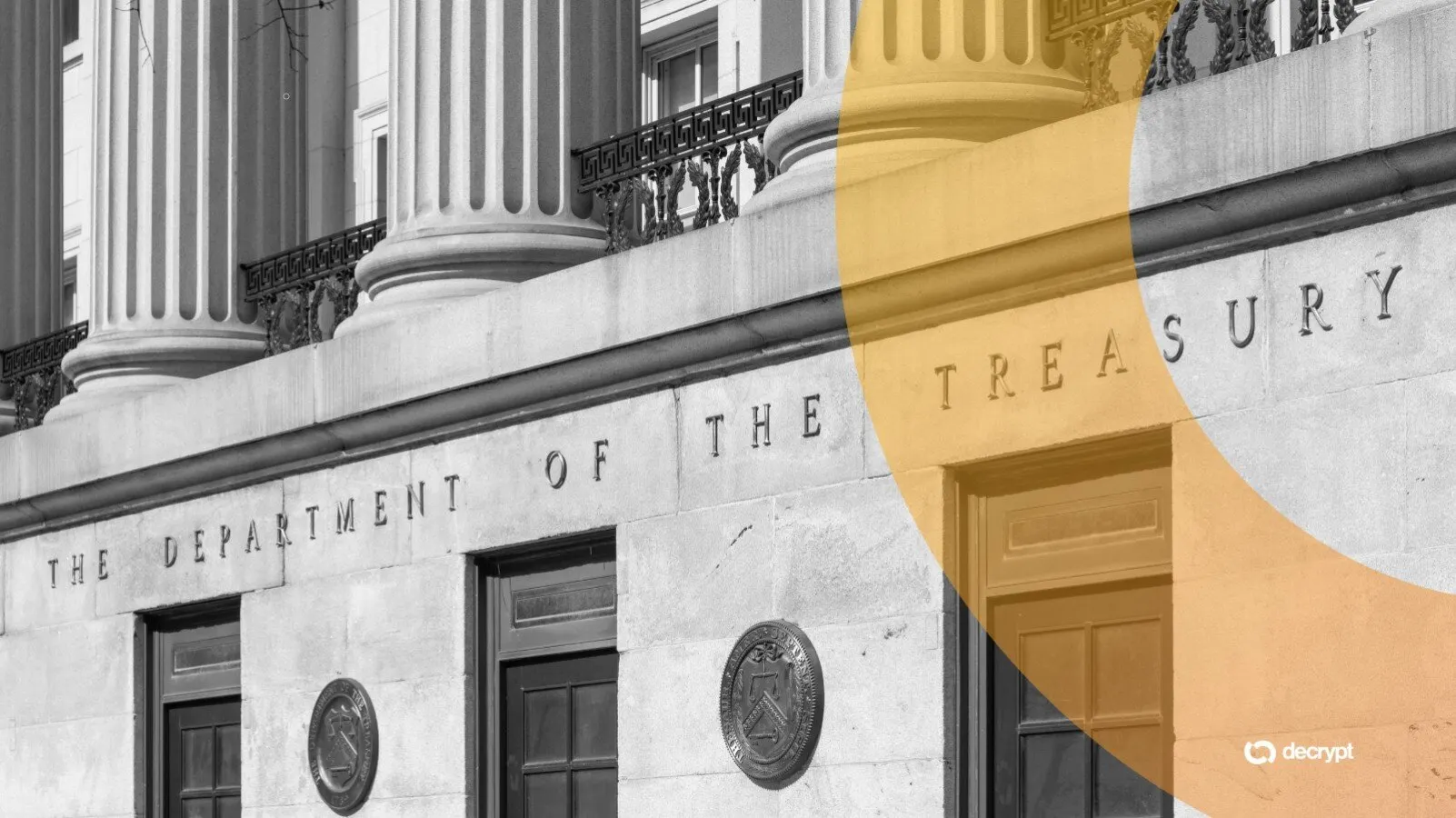In brief
- The U.S. Treasury and IRS issued guidance Monday allowing Wall Street crypto products to offer staking rewards under a new safe harbor.
- The move gives regulatory clarity to staking assets like Ethereum and Solana, easing institutional participation.
- Industry leaders say the guidance could significantly boost mainstream adoption of proof-of-stake blockchains.
The U.S. Treasury Department and the IRS issued new guidance Monday that paves the way for Wall Street-traded crypto products to generate staking yield for investors, in a move industry leaders said could significantly increase mainstream adoption of proof-of-stake blockchains like Ethereum and Solana.
The guidance creates a safe harbor for investment trusts to stake digital assets without risking running afoul of existing tax and regulatory guidelines.
In situations where trusts fulfill certain easy-to-meet criteria, staking digital assets now appears to be a firmly greenlit institutional activity in the eyes of the federal government.
Today @USTreasury and the @IRSnews issued new guidance giving crypto exchange-traded products (ETPs) a clear path to stake digital assets and share staking rewards with their retail investors.
This move increases investor benefits, boosts innovation, and keeps America the…
— Treasury Secretary Scott Bessent (@SecScottBessent) November 10, 2025
To enter the safe harbor, trusts must hold only one type of digital asset from a permissionless, proof-of-stake blockchain network; follow certain liquidity protocols; perform no other function besides holding, staking, and redeeming the token in question; and rely on a custodian and an independent staking provider to handle the staking process.
U.S. Treasury Secretary Scott Bessent celebrated the guidance Monday, saying it provided a clear path to staking digital assets on Wall Street and sharing those rewards with retail investors.
“This move increases investor benefits, boosts innovation, and keeps America the global leader in digital asset and blockchain technology,” Bessent wrote on X.
Proof-of-stake networks like Ethereum and Solana depend on users depositing native tokens with the networks in order for them to securely function. In return for staking tokens and keeping the networks running smoothly, these user deposits accumulate rewards, which typically range in annual percentage yield from 1.8% to as high as 7% depending on the network and amount staked.
The legal status of staking yield has vexed industry leaders for some time. During the Biden administration, the SEC seemed partial to the idea that staking rewards could be considered profits derived from the efforts of others, and thus unregistered securities, under U.S. law.
When the SEC approved spot Ethereum ETFs last year, those products notably did not allow for staking. Last month, Grayscale became the first U.S. ETF issuer to offer ETH staking rewards to holders.
Today’s announced policy is poised to make such offerings far more common on Wall Street, given the amount of regulatory and tax-related certainty that was just given to more risk-averse TradFi issuers.
“The impact on staking adoption should be significant,” Bill Hughes, head of global regulation at Ethereum software giant Consensys, said Monday of the new safe harbor guidance. (Disclaimer: Consensys is one of 22 investors in an editorially independent Decrypt.)
“It effectively removes a major legal barrier that had discouraged fund sponsors, custodians, and asset managers from integrating staking yield into regulated investment products,” he continued.
Patrick Witt, executive director of President Donald Trump’s Council of Advisors for Digital Assets, celebrated the Treasury Department’s Monday announcement, which he said stemmed from a recommendation made in a White House report on crypto released this summer.

